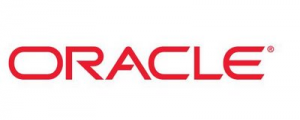
AmCham discussed on Joint Collection Authority (JIM) Project
On February 10, AmCham discussed the third pillar of prepared Tax Reform 2010 with project director Mr. Zdenek Tesar from the Ministry of Finance. Along with works on two new tax laws, JIM entails an institutional reform with its complexity of implementation requirements. The project will be precised soon after the next World Bank Mission. Read the minutes from discussion...
Project director Mr. Zdenek Tesar briefed about recent progress on project implementation:
- further decisions and concrete parameters of the project will only be defined following the outcome of the next World Bank mission which is acting as a consultant in implementing of JIM. The mission is planned for February 2009 and a three-month delay to original timetable occurs
- additionally, other consulting firm will be selected to advise on suitable model for the Czech Republic
- two central versions how the joint collection authority may be introduce exist:
- creation of completely new institution or
- transformation of existing tax authorities (considered to be more economic alternative). Various models as:
- model 14 (one office in each region) or
- model 14 + 1 (plus specialized authority for large multinational tax units requiring specialized approach, this is also a foreign trend, e.g. above certain turnover) or
- model 14 + 1 +1 (plus special investigation unit, model preferred by Customs). According to Mr. Tesar’s suggestion, the inclusion of some other competencies (e.g. review, audit where the same IT, human resources or other support can be used) under the same administration should be considered in order to economize ministerial processes.
- exact structure of the offices may differ according to local conditions (human resources, IT support etc.)
- 12 working teams were created and focus on the identification of eventual risks that can possibly be omitted by analysis of the World Bank
- JIM will be created as independent authority under the supervision of the Ministry of Finance, the Ministry of Health and the Ministry of Labor and Social Affairs (same three ministers create the Project board)
- to fulfill the objectives of the project – centralization, simplification and effectiveness of tax and social contributions administration – an increase in use of electronic communication with authorities will be fundamental
- centralization also aims to eliminate currently existing non-uniform interpretation
- due to complexity of the project, in the first phase, the competencies of tax authorities and customs will be reorganized with effect from January 1, 2010 by amending law 531/1990 Coll. (in commentary round at the end of February), that will be followed by integration of health care and social contributions administration in the next step (in 2012)
- harmonization of tax base will be crucial, not its unification, this is not possible
- end-user (the citizen) will only use one tax claim form
- Joint Account (jednotni platebni ucet),from which payments will be distributed further, will be introduced; all payments will have to be identified
- the accurate quantity of data gather from tax units – this will be critical in order to facilitate and improve effectiveness of tax audits (in Denmark, an entire book-keeping is available to authorities)
- IT aspects are the most crucial in the implementation of the project. Specialized IT team within the World Bank mission will not start to work before the project parameters are agreed. New IT system will be created and interconnected with existing registers and e-Government features.
- mandatory use of authorized electronic signature in communication with JIM is still being discussed
- political consensus – the importance of the project is broadly accepted and supported also by opposition parties, however, there are different opinions regarding the order of particular reform steps
- Mr. Tesar is opened to discuss any suggestion and improvements from AmCham membership.
Conclusion:
- AmCham will follow up further progress in the project implementation and provide eventual suggestions from among the membership.
For more information do not hesitate to contact Andrej Kandráč at akandrac@amcham.cz or 602 790 012.
Log In




